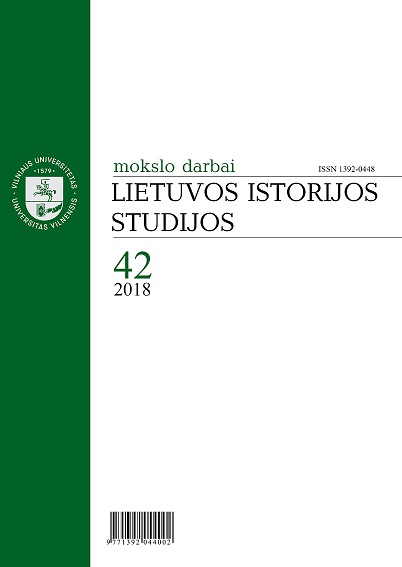Lenkijos–Lietuvos Respublikos veiksnys Očakovo krizės (1791) kontekste
The Factor of the Polish-Lithuanian State in the Context of the Ochakov Crisis (1791)
Author(s): Česlovas LaurinavičiusSubject(s): Diplomatic history, Military history, Political history, International relations/trade, 18th Century, Peace and Conflict Studies
Published by: Vilniaus Universiteto Leidykla
Keywords: England; Russia; Prussia; diplomacy; Hertzberg’s plan; Gdansk; Torun; mission of M. K. Oginski;
Summary/Abstract: In the spring of 1791, England led a large coalition against Russia. London planned to throw powerful naval forces, which had not previously been used, against St. Petersburg. At the same time, Prussia prepared an army consisting roughly of 100 000 men. Turkey, Sweden, the Netherlands, perhaps the Polish-Lithuanian state, as well as a number of German leaders, also belong to the coalition. In March 1791, an ultimatum was drawn up and proposed to Russia, demanding the return of a number of fortresses to Turkey in the Black Sea region, including the Ochakov Fortress. For historians, the main intrigue is why the coalition war against Russia did not materialize. This article focuses on the place and role of the Polish-Lithuanian state in this crisis. In the article, the political orientation on Prussia, realized by Warsaw in 1788–1790, is evaluated negatively. Accordingly, it should be concluded that it is impossible to adequately consider the reforms of the state, especially the Constitution of May 3, 1791, without taking into account the foreign policy situation. It also concludes that the commercial system developed by William Pitt was not implemented in Eastern Europe mainly due to a number of objective circumstances.
Journal: Lietuvos istorijos studijos
- Issue Year: 2018
- Issue No: 42
- Page Range: 48-65
- Page Count: 18
- Language: Lithuanian

